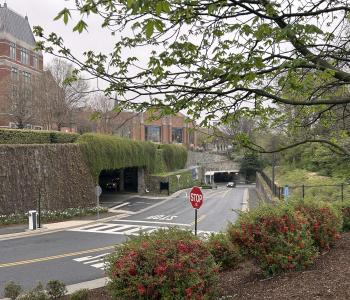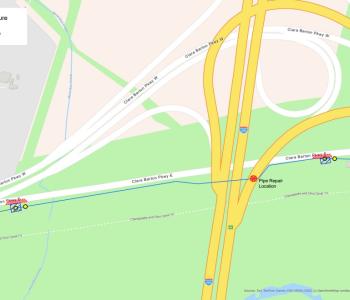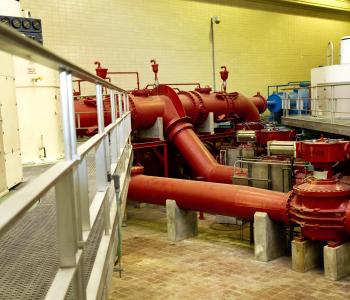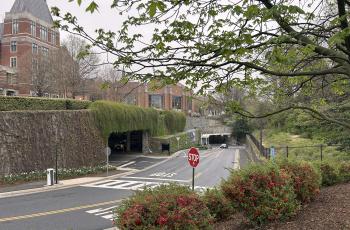DC Water’s Anacostia River Tunnel saves river from 4.5 billion gallons of sewage overflow in 2018
Tunnel opened and operational during wettest year on record
Last Monday night’s rain was a fitting way to ring out the year—as 2018 goes into the books as the wettest year on record.
“This year was the ultimate test for the Clean Rivers Project tunnel system, said DC Water CEO and President David L. Gadis. “In the rainiest year on record, the tunnel, along with green infrastructure, beat all projections for cleaning the river. The improved health of this waterway is bringing a Renaissance to the waterfront from housing, retail and sports venues, to recreational and environmental opportunities.”
Added DC Water Chairman of the Board Tommy Wells, “It is truly remarkable the first Clean Rivers tunnel has captured over 4.5 billion gallons of sewage that would have otherwise been discharged into the Anacostia River. This achievement marks a major milestone towards making the Anacostia swimmable and fishable for generations to come.”
DC Water’s projects support the goals of the Anacostia Waterfront Initiative, a collaboration of District agencies, and non-profit, federal, and regional partners to realize the potential of the Anacostia waterfront. In addition to Nationals Stadium and the new Audi Field, mixed-use development will bring tens of thousands more residents and employees to the area.
Through 2018, National Airport reported 66.28 inches of rain, which outpaced the prior record of 61.33 inches from 1889 and was more than 26 inches above the normal rainfall amount in a year (39.74 inches). In addition, five months of the year (May, July, September, November and December) ranked among the top 10 wettest months on record.
DC Water opened the first 7-mile segment of the Anacostia River Tunnel system in March. This massive structure stores combined sewage during rain events, keeping sewage from overflowing to the river. From March through December 31, the tunnel prevented 4.57 billion gallons of sewage, and nearly 900 tons of trash, solids and debris, from entering the Anacostia.
Originally projected to reduce CSOs by approximately 80 percent in an average rainfall year, the system has exceeded expectations by achieving an 89 percent capture rate. Now, instead of flowing into the Anacostia, the combined stormwater and sewage is captured and conveyed to the Blue Plains Advanced Wastewater Treatment Plant for treatment prior to discharge to the Potomac River.
The first portion of the Anacostia Tunnel provides about 100 million gallons of storage and includes a 225 million gallon per day Wet Weather Treatment Facility at Blue Plains. The next portion of the Anacostia River Tunnel system, the Northeast Boundary Tunnel, is under construction now and will add approximately 90 million gallons of storage when it is placed into service in 2023. The Northeast Boundary Tunnel also reduces the chance of flooding in northeast DC neighborhoods that have struggled with flooding issues for over 100 years.
For more information on the Clean Rivers Project, a $2.7 billion plan for healthier District waterways, please visit: dcwater.com/cleanrivers.







